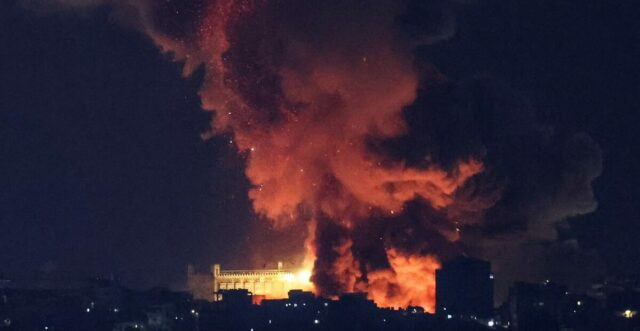There’s little doubt that Hezbollah and Hamas have been seriously weakened, Hezbollah by Israeli operations in the last week, and Hamas over the last 10 or 11 months. But the view is they retain their core strengths despite sustained military and economic pressure.
Hezbollah Degraded But Still Intact
Indian diplomats with experience of this volatile pat of the world, believe that Hezbollah has faced significant setbacks, particularly in terms of its leadership structure. Israeli operations have targeted the group’s command hierarchy, resulting in the death of Secretary-General Hassan Nasrallah and several of his top aides including the man tipped to replace him, Hashem Safieddine.
These assassinations may have created a leadership vacuum, testing its ability to maintain cohesion in the absence of its long-standing leaders, the diplomats believe.
But Hezbollah had considerable military assets including a sizable arsenal estimated at 130,000 rockets and missiles, according to a report by Bruce Riedel of the Brookings Institution.
“Every city and town in Israel is at risk,” Riedel writes, “this arsenal is a means to deter Israel from attacking Iran’s nuclear facilities. A military assault on Iran’s nuclear infrastructure will likely spark a massive attack on Israel by both Iran and Hezbollah.”
This analysis was written in January this year, well before the multiple blows on Hezbollah over the last week. But it’s imporrtant to note that Hezbollah has deep roots in Lebanon and is far from being destroyed.
Its continuing role as a dominant political player in Lebanon and its operational presence on the border with Israel indicate a state of degraded capacity rather than total elimination.
Hamas: Resilient Amid Isolation
Hamas has also seen its operational capabilities diminish under Israeli military pressure. Multiple campaigns have targeted its military infrastructure, including weapon depots and tunnel networks used for smuggling and surprise attacks.
Nevertheless, Hamas has managed to maintain control over the Gaza Strip and retains the ability to launch sporadic rocket attacks against Israel, showing that it still has access to some of its military resources.
One of the critical challenges for Hamas is securing external support. The organisation has experienced a decline in foreign financial aid, and it’s not clear if there are any local revenue streams given the devastation wrought by Israel. As for support from Iran, its financial situation may not be healthy given sanctions. So only limited support may be available.
If this is indeed the case, Hamas may prefer to conserve its resources for targeted engagements rather than large-scale offensives.
Research Associate at StratNewsGlobal, A keen observer of #China and Foreign Affairs. Writer, Weibo Trends, Analyst.
Twitter: @resham_sng





